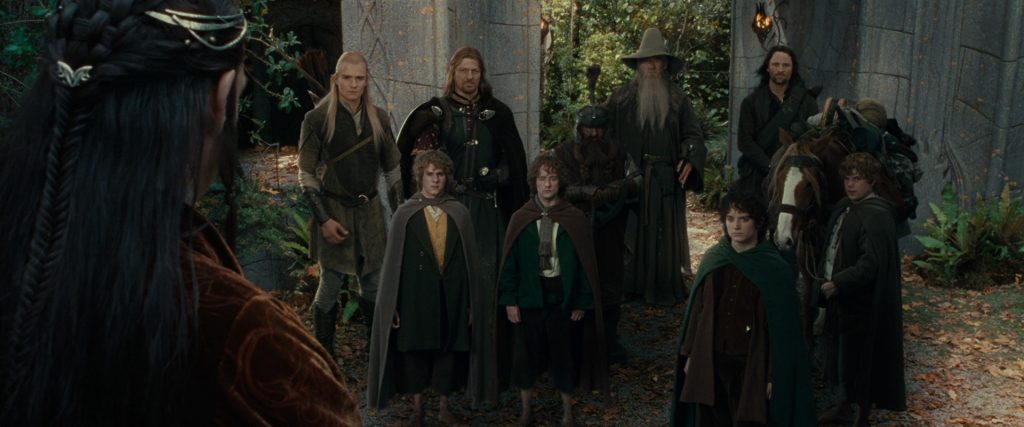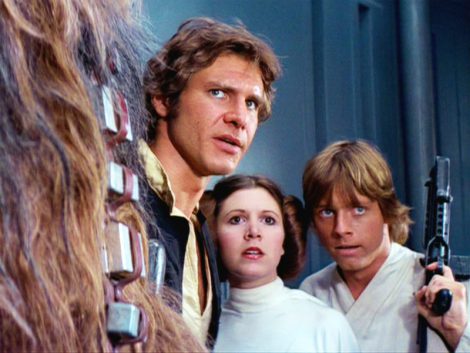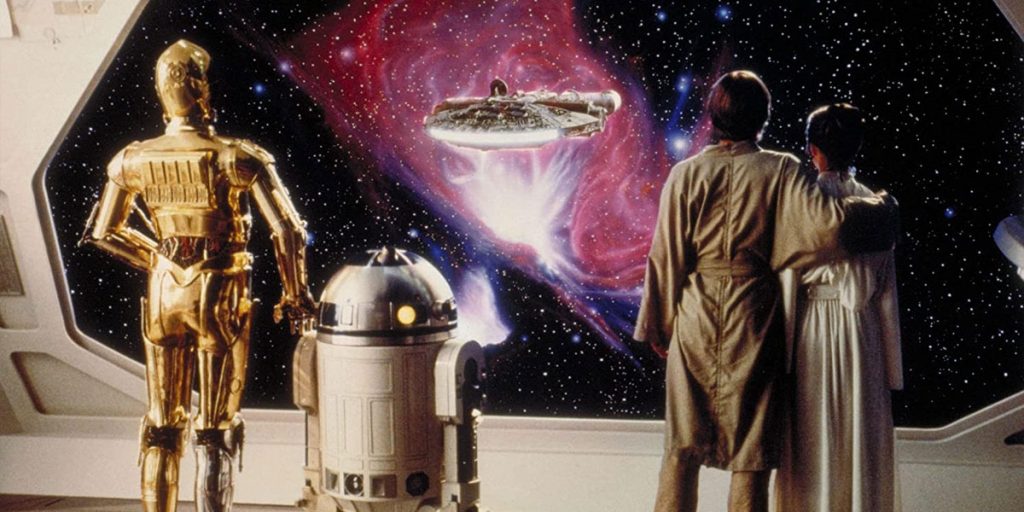Movie trilogies have the power to captivate audiences and leave a lasting impact on the world of cinema. There’s something comforting about discovering a film and knowing that you’ll get to spend more time with its characters in the future, as new movies are released. Of course, the world is full of plenty of flawed or even pretty bad trilogies, but there are also those films that were always meant to be developed as various chapters of one big adventure, and those are the trilogy that truly make a mark.
Throughout film history, we’ve seen the release of countless trilogies belonging to a variety of genres, from cult classics like Back to the Future and Sergio Leone’s Dollars Trilogy and gems like Park Chan-wook’s Vengeance Trilogy to superhero films like Sam Raimi’s Spider-Man movies and animated favorites likeToy Story 1-2-3. And then there are all those movies that were originally intended as trilogies until more sequels were released, such as The Matrix, the Bourne films, the Alien franchise, Indiana Jones’ original trilogy, Pirate of the Caribbean 1-2-3, and many, many more.
While it would be impossible to list all the great movie trilogies that have stood the test of time and become all-time classics, here are 3 that stand out as truly exceptional and you should definitely check out if you haven’t yet.
1. The Lord of the Rings Trilogy
Movies: The Lord of the Rings: The Fellowship of the Ring (2001), The Lord of the Rings: The Two Towers (2002), The Lord of the Rings: The Return of the King (2003).
Director: Peter Jackson

If you were to ask a bunch of strangers what their favorite film is, chances are at least a third of them would say The Lord of the Rings. Based on J.R.R. Tolkien’s novels of the same name, Peter Jackson’s trilogy is made of three equally special chapters of a journey that feels as epic in scale as its source material, delivering hours of breathtaking visuals, well-rounded characters, impressive worldbuilding, and deeply affecting storytelling.
Needless to say, the film revolves around a ring. And it’s not just any ring, but the One Ring, a powerful artifact that was forged on a mountain and that holds immense power but also has the potential to destroy the entire world. Many are the people looking for it, some of them powerful forces of evil, but the person who stumbles upon it is a young Hobbit named Frodo (Elijah Wood), who is tasked with the impossible mission of returning it back to the mountain. And so, Frodo embarks on a long and perilous journey with fellow Hobbits Sam (Sean Astin), Merry (Dominic Monaghan) and Pippin (Billy Boyd), as well as various representatives of the Free Peoples of Middle-earth: a wizard named Gandalf (Ian McKellen), Legolas the elf (Orlando Bloom), Gimli the dwarf (John Rhys-Davies), men Aragorn (Viggo Mortensen) and Boromir (Sean Bean).
Storytelling-wise, this is exactly what makes so many people love The Lord of the Rings movies. The adventure itself is a gripping enough story, but it’s the characters that give it meaning, even more so as they come from different backgrounds and hold very different beliefs: a bigger threat needs them to join forces, and our heroes – and the many people who cross their path – come out stronger and wiser because of it. And, if the films’ message of friendship and community against adversity wasn’t enough, The Lord of the Rings is also a technical achievement, as it was one of the first big-budget production to truly deliver a filmmaking feat like no other, where every single minute of its 12-hour runtime was planned to the tiniest detail. On top of that, it also features one of the most memorable scores (Howard Shore) in film history. If you’re looking for a great trilogy to revisit, you should definitely start with this one.
2. The Godfather Trilogy
Movies: The Godfather (1972), The Godfather Part II (1974), The Godfather Part III (1990)
Director: Francis Ford Coppola

Both The Godfather (1972) and The Godfather Part III (1990) are widely regarded as some of the best films of all time, and, while Part III is definitely the weakest movie in the trilogy, it doesn’t take anything away from the first two movies. Based on Mario Puzo’s award-winning novel of the same name, Francis Ford Coppola’s mafia trilogy tells the story of the decline of a crime family, exploring the rise and fall of the Corleone empire.
The first film mainly centers around Michael Corleone (Al Pacino), who turns the family’s dynamics upside down when he reluctantly agrees to join the family business, even more so since there are those outside the family who are trying to break them apart. The 1974 sequel, which also acts as a prequel, gives us an even more complex story of power dynamics and betrayal, by simultaneously following an older Michael in 1974 and his father Vito (Robert De Niro) as a young man in the 1910s, when he built his empire. Part III concludes the story with some puzzling casting and creative decisions, but the legacy of the trilogy remains.
The Godfather trilogy has acquired cult status because it’s quite simply an astonishing achievement on several levels. It gave birth to a whole new kind of gangster genre that was completely different to anything that came before, and delivered its irresistible, complex story with gorgeous cinematography (Gordon Willis) and flawless performances from Marlon Brando, Al Pacino, Robert De Niro, and the many familiar faces appearing throughout. If you’ve never seen the films, you’re in for a treat.
3. The Original Star Wars Trilogy
Movies: Star Wars: Episode IV – A New Hope (1977), Star Wars: Episode V – The Empire Strikes Back (1980), Star Wars: Episode VI – Return of the Jedi (1983)
Directors: George Lucas, Irvin Kershner, Richard Marquand

The original Star Wars trilogy revolutionized the science fiction genre. The films’ story is pretty straightforward: it’s a good vs evil scenario, where a rebellion is taking place to defeat the Galactic Empire, and a mission needs to be put in place when the ruthless Darth Vader (David Prowse), who has just developed a weapon that can destroy planets within seconds, holds Princess Leia (Carrie Fisher) – the head of the rebellion – hostage. But minutes before she’s captured, Leia manages to ask for help, and the young man who happens to pick up her message, Luke Skywalker (Mark Hamill), is no ordinary man. Luke teams up with retired Jedi Master Obi-Wan Kenobi (Alec Guinness), charming smuggler Han Solo (Harrison Ford) and his hairy companion Chewbacca (Peter Mayhew), as well as iconic droids R2-D2 (Kenny Baker) and C-3PO (Anthony Daniels), and sets off on a mission to save the Princess, but he will discover a lot more in the process.
Where do we even start to describe the first three Star Wars movies? With the sequels, prequels, and spin-off movies and series out now, it’s easy to forget how much of an impact the first films had on the industry as a whole. Back in 1977, George Lucas completely revolutionized science fiction, giving the genre completely new aesthetics and meaning. If up till then audiences were used to cheaply produced comic book adaptations that often recurred to melodrama, Lucas proved that sci-fi could also be exciting and spectacular. Star Wars sees the use of the most inventive dubbing and special effects you can think of, and John Williams’ score brings a revolution of its own, proving that there was still room for grandiose, epic orchestral scores in sci-fi blockbusters when the industry had moved on to pop and disco sounds. And on top of this, it’s also one of the most exciting adventures you’ll ever embark on.
In the realm of movie trilogies, few can compare to the epic grandeur of The Lord of the Rings, the gritty portrayal of power and family in The Godfather, and the timeless adventure of the original Star Wars trilogy. These 3 great trilogies have captured the hearts and imaginations of audiences across the globe, showcasing the power of storytelling and the artistry of filmmaking.

